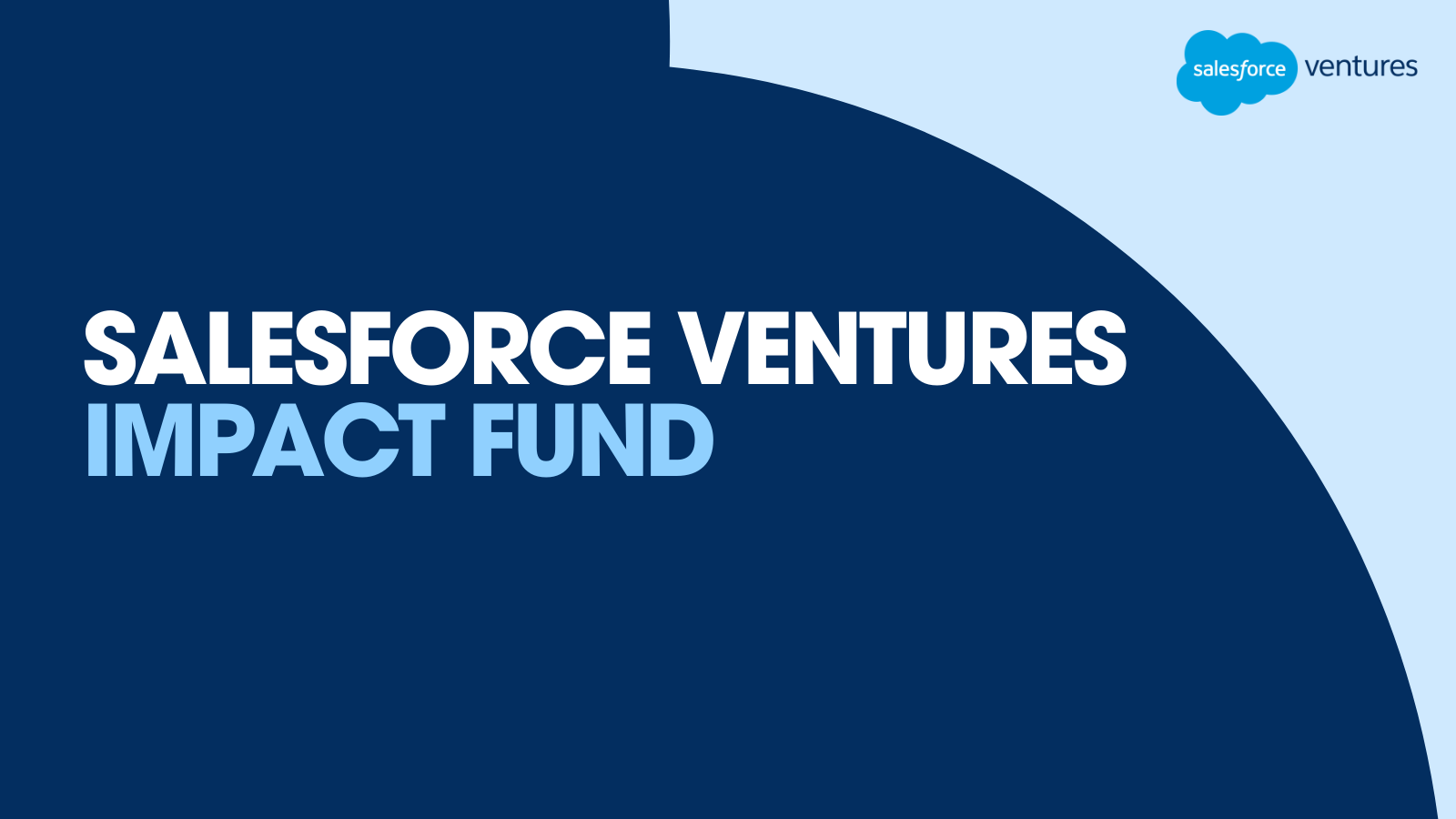Salesforce Ventures Impact Fund Report: Annual Results and Outlook
At the Salesforce Ventures Impact Fund, we invest in entrepreneurs leading high-growth companies driving environmental and social change. These innovators tackle meaningful challenges and use their businesses to create a positive impact. Even though we face daunting threats – from an escalating climate emergency to deepening systemic inequality – we remain optimistic. While 2022 provided its fair share of market challenges, our team remains excited about the opportunity to invest in the best startups and founders who are working tirelessly to ensure a better future for our planet and communities. Below, we provide a brief retrospective on what our team and portfolio experienced in 2022 and the encouraging results from our annual impact report.
A Look Back at 2022
New and unanticipated challenges surged throughout 2022, leading to volatility and constraints across financial markets that had not been seen throughout the prior decade. The overarching macroeconomic uncertainty, fueled by rising inflation and interest rate hikes, only intensified these effects. As a result, we saw the pace of deal flow decline across the entire investment ecosystem. This shift represented a drastic departure from the substantial growth we’d seen during the years prior.
Despite these challenges, the industries we cover showed remarkable resilience. The size of the impact investing market overall is now estimated to be $1.2 trillion and has grown more than 60% since 2020.1 Climate tech, most notably, was a standout. In 2022, more than a quarter of every venture dollar invested went to climate tech.2 Last August, Congress passed the most comprehensive climate bill in our country’s history. The Inflation Reduction Act (IRA) served as a monumental signal that the federal government is prioritizing innovations to combat climate change. The next generation of climate technologies could attract $2 trillion of annual investment by 2025.3 Our climate portfolio companies saw growth throughout the year, and many, including Arcadia, Rheaply, and Circulor, announced major investment rounds.
While the global venture slowdown did affect other verticals we invest in, there is still strong global interest and a massive amount of investment flowing into these sectors. In 2022, education technology (“EdTech”) companies received $10.6 billion in investment.4 The global EdTech market was valued at $123B last year and is expected to expand at a 13.6% CAGR between now and 2030.5 Similarly, digital health funding crossed $15 billion in 2022.6 Despite the dip from the year prior, investors expect digital health dollars to reach up to $25 billion in 2023.7 Finally, with fintech markets seeing declines in the context of rising interest rates, technology solutions rooted in financial inclusion have grown even more important. Widening inequality continues to plague the broader market, and companies like Propel, which is improving America’s safety net, are more critical than ever.
The Road Ahead: Impact Report and 2023 Outlook
Each year, our portfolio demonstrates the crucial contribution startups have on these challenging but solvable social and environmental problems. With that, our team is happy to share our annual Impact Report. It provides a look into our portfolio’s annual impact and spotlights a few of our outstanding entrepreneurs, including the founders of Oyster, WeaveGrid, and Propel.
In 2022, our 31 active portfolio companies collectively reduced 2.6 million metric tons of CO2, served 4.3 million low-income learners, and expanded access to healthcare services to 3.2 million patients. The companies created nearly four thousand net new jobs across industries, and their products reached more than 66 million people across the globe. These are incredible results for businesses that were founded only a few years ago.
We launched the Salesforce Ventures Impact Fund in 2017, and we have been encouraged to see so many others join the growing community of impact investors since then. The urgent need to address ongoing social and environmental challenges propelled impact investing into the mainstream. As we look to 2023 and beyond, we see ample opportunity to continue doubling down. We know there has never been a more important time to invest in the next generation of climate, education, and healthcare technologies. Our team will continue to expand our portfolio by investing in founders building ambitious companies in these sectors.
Salesforce Ventures Impact Fund team and founders







Footnotes
1GIIN
2PwC
8Underrepresented minority is defined here as those that identify as Black, Indigenous, or LatinX.













